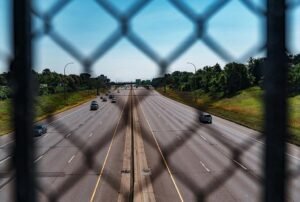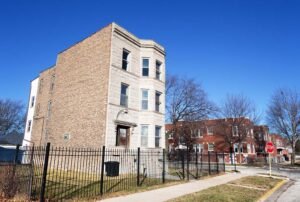
March 31, 2020; American Banker
A month ago, NPQ noted that rules changes proposed by two of three leading federal regulators of banks, the Office of the Comptroller of the Currency and the Federal Deposit Insurance Corporation (FDIC), threaten to gut a leading piece of legislation that has supported community economic development, the Community Reinvestment Act (CRA). The law, passed in 1977, established an “affirmative obligation“ for banks to make their financial services, loans, and credit available to low- and moderate-income residents, especially in communities of color, helping direct nearly $2 trillion in lending to disinvested neighborhoods since the mid-1990s.
As NPQ noted in February, the proposed regulations would convert a set of context-dependent qualitative and quantitative tests into a single ratio—total CRA-eligible dollars over total deposits. Because only half of the assessed areas would have to hit benchmarks for a bank as a whole to pass a CRA exam, the bill would create a clear invitation to return to redlining. And the lack of community-specific standards means that community accountability would be vitiated.
With 10 million people losing their jobs over the past two weeks, now would certainly seem to be a very poor time to be pulling back incentives to invest in historically under-resourced communities. But the banking deregulation train continues unabated. A deadline for public comment will end today, April 8th, even as a growing chorus of banking and community groups are calling for a six-month moratorium in rulemaking.
In other areas, the federal government has proven capable of acting in this fashion. For instance, as NPQ reported yesterday, student loan payments have been suspended from March 13th through the end of September. But when it comes to giving a break to low-income communities and communities of color…at least so far, there is no indication of any federal action. And, despite a mounting call from community and banking groups, so far, at least, federal banking regulators have given no indication that they are paying any heed.
This is not for a lack of effort. “Community bankers are calling for a six-month halt in rulemaking except for regulations dealing with the coronavirus outbreak,” writes Brendan Pedersen in American Banker. For example, in a March 30th letter, Independent Community Bankers of America CEO Rebeca Romero Rainey “urged financial regulators to suspend non-coronavirus-related rules to allow banks to focus on the fallout from the pandemic.” In her letter, Rainey notes, “Combating the COVID-19 crisis demands the full attention and all available resources from the public, from state, local, and federal government entities, as well as all industries, including the vital financial services industry. Not only are financial institutions impacted, but the voices of those institutions are also engaged in this all hands-on deck reality.”
At a time when banks are clearly overwhelmed with the need to process a huge volume of payroll protection program loans/grants and the overall economy is in free fall, it would seem obvious that banking regulators ought to have many higher priorities than rulemaking.
Sign up for our free newsletters
Subscribe to NPQ's newsletters to have our top stories delivered directly to your inbox.
By signing up, you agree to our privacy policy and terms of use, and to receive messages from NPQ and our partners.
A number of community-based organizations have joined the call for a six-month rulemaking moratorium. The National Community Reinvestment Coalition (NCRC), a national coalition of local community-based advocates, emphasizes that, “This grave pandemic demands a comprehensive and all-encompassing response. The health and wellbeing of our fellow citizens and residents are at stake.”
Today, according to an NCRC press release, NCRC and another nonprofit, Democracy Forward, took a further step, filing suit against OCC and FDIC in US Federal Court for the District of Columbia “for failing to locate and produce records and analysis that the Trump administration relied on for its proposed revisions to the Community Reinvestment Act (CRA) regulations.”
For its part, the National Alliance of Community Economic Development Associations (NACEDA) observes:
Your institutional peers at the Internal Revenue Service (IRS), Federal Housing Finance Agency (FHFA), and the Department of Housing and Urban Development (HUD), among others, have swiftly instituted delays, suspensions, and other emergency procedural actions with the goal of prioritizing focus on the immediate needs this pandemic presents.
The immediate public health risks may last weeks, months, or longer. The economic impact will be felt for years and be most acute in the coming months. Community-based organizations in our networks need to focus on that recovery. Please suspend the rulemaking process until the economic impact and necessary response to this pandemic becomes clearer and community-serving organizations again have the capacity to focus on shaping long-term futures, as well as serving short-term needs.
One might hope that banking regulators will pay attention to these calls for restraint. But COVID-19 can serve as convenient cover for regulators to make changes when few are looking; for instance, the US Environmental Protection Agency rolled back carbon emissions limits on automakers less than two weeks ago. In community economic development, as with the environment, vigilance is clearly required.—Steve Dubb













